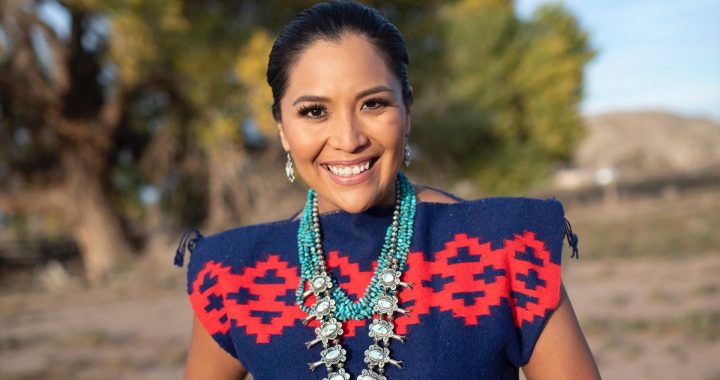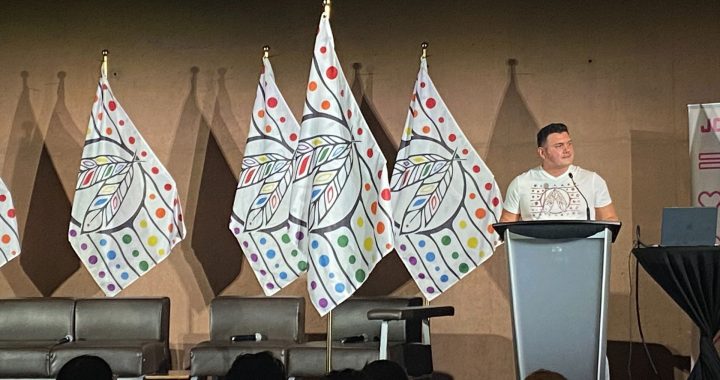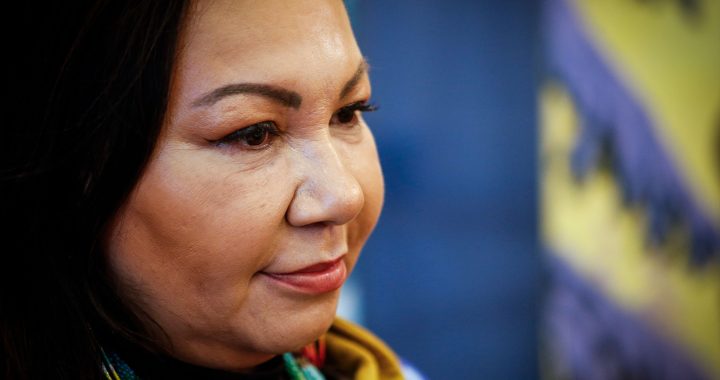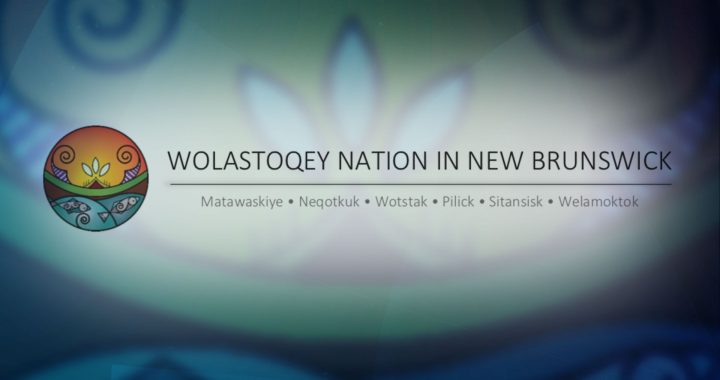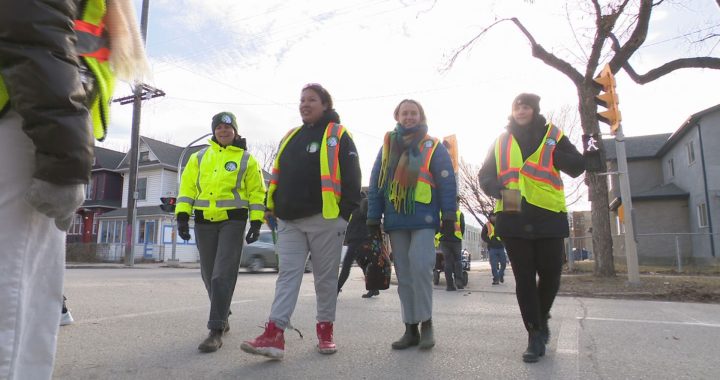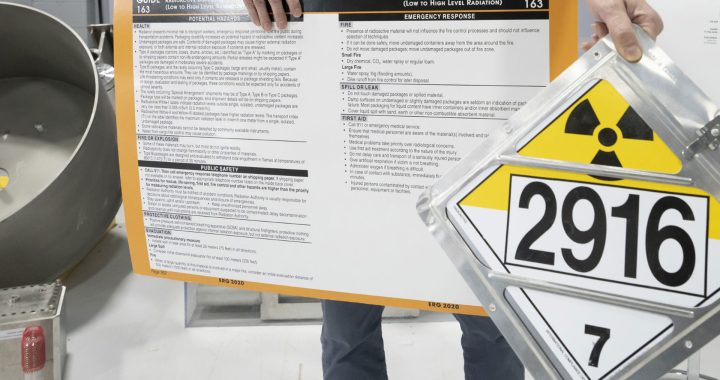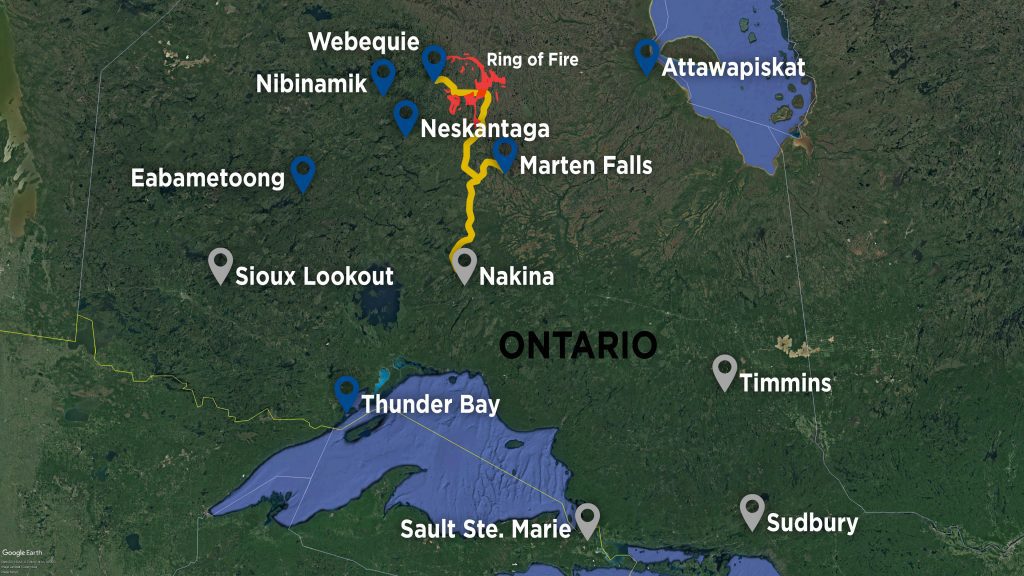
The proposed area dubbed the Ring of Fire sits 500 km northeast of Thunder Bay, Ont. Map: APTN News
The province of Ontario has signed a deal with four First Nations to upgrade roads in the northern region of the province.
The province says Animbiigoo Zaagi’igan Anishinaabek, Aroland First Nation, Ginoogaming First Nation and Long Lake #58 First Nation have all signed the letters and will see their roads that connect to the provincial highway system upgraded.
According to a news release from the province, the roads, about 300 km east of Thunder Bay, Ont., will support mineral and resource development.
“As we rebuild Ontario’s economy, our government is developing meaningful partnerships with First Nations across Ontario that create real opportunities for economic growth and job creation,” said Premier Doug Ford in the release.
“Together with First Nations partners, we’re improving and upgrading northern roads to better connect First Nations communities to the province’s highway network and to support future critical mineral and resource development opportunities.”
“These are all season roads that will support First Nations communities, built by First Nations workers,” he said.
According to the release, “The province is trying to create an end-to-end manufacturing chain for electric vehicle batteries and it sees northern Ontario’s Ring of Fire region as a prime source for the critical minerals needed.”
In an emailed statement, provincial Indigenous Affairs Minister, Greg Rickford, said the province is building consensus with First Nations for economic development.
“Building on the success of today’s announcement we believe we are in the best position any government has ever been to build out the corridor to prosperity for the benefit of isolated First Nation communities north of us and a real prospect of developing critical minerals in the Ring of Fire,” he said.
According to the province, “Today’s agreement includes the following:
- Building and improving the highway infrastructure that will help connect more First Nations communities to the province’s highway network. This work includes maintenance and upgrades to Highway 584 and Highway 11, with work starting this construction season.
- $1.9 million from the Ministry of Labour, Immigration, Training and Skills Development for the Indigenous Workforce Development Program through the province’s Skills Development Fund. The program will provide training and support to secure jobs related to mineral development in the region.
- $2 million to fund the construction and maintenance of the Migizi Plaza Rest Stop, which will serve the needs of First Nation members, tourists and residents, create jobs and drive revenue for the First Nations and Municipality of Greenstone.
- The province will work to relocate the Greenstone OPP detachment, with support for the relocation costs from Greenstone Gold Mine. Relocating the station will ensure that people have access to police services, close to home, following the displacement of the station during the mine’s construction.
- The province will engage with relevant First Nations communities and police services to develop a pre-charge diversion program.”
“All of this work is a testament to what can be achieved when First Nations, government, and industry collaborate effectively and negotiate equitable agreements that bring real benefits to our members,” said Chief Sonny Gagnon, from Aroland First Nation.
The province claims not only will the roads be built by First Nations workers, the project also includes “funding for other community infrastructure and skills training programs for First Nations people, including resource development.”
Chief Sheri Taylor from Ginoogaming First Nation said she’s embracing the future possibilities for her community.
“Minodahmun’s Indigenous Workforce Development Program is crucial for empowering our people with the skills and opportunities to build meaningful careers, strengthen our communities and ensure our members are participating in projects on our lands.”
However, there are six First nations in the area who do not agree.
Asubpeeschoseewagong First Nation (Grassy Narrows First Nation), Kitchenuhmaykoosib Inninuwug (Big Trout Lake First Nation), Wapekeka First Nation, Muskrat Dam First Nation, Onigaming First Nation and Neskantaga First Nation signed a mutual agreement to become a coalition called The Land Defense Alliance, that is demanding respect for First Nation sovereignty and decision making powers.
In a phone interview Chris Moonias, band manager from Neskantaga First Nation, he has never been consulted on mining or the Ring of Fire Roads.
“They have never consulted with us,” said Moonias.
“We do not want anymore mining, but most of all we want to be consulted. We want to be treated like people.”
Chief Jeffrey Copenace, of the Ojibways of Onigaming, said in a Land Defense Alliance Facebook post, “All the government is interested in is stealing our resources,” he said. “If you are not going to save our lives then you cannot have access to our lands and waters.”
In the same post, deputy chief of Wapekeka First Nation, Allan Brown, said, “The governments have been non-existent s we face multiple crises both in and outside our communities. We are facing real life issues daily, such as a drug epidemic. The Ontario and Federal governments only care about the resources on our land and not the lives of our people.”
With files from the Canadian Press.
Editor’s Note: The original story said the roads were in an area called the Ring of Fire. This is incorrect and story and headline has been updated.




